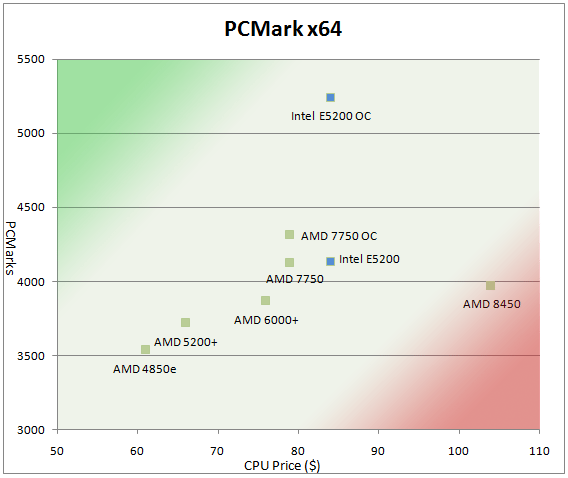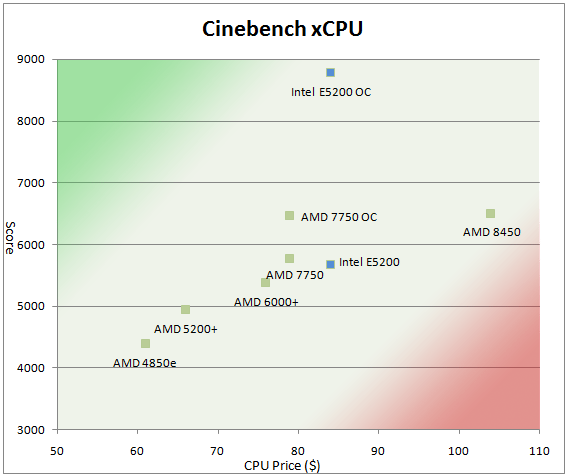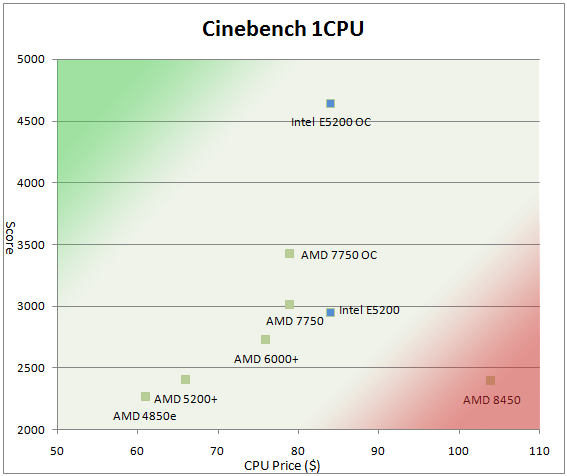PCMark Vantage x64
Publisher: FuturemarkPCMark Vantage x64 is a Vista-only 64-bit productivity benchmark that tests a range of standard application types providing a general performance number in respect to other systems.
It tests multi-core processors and requires a processor with at least SSE2 support and a graphics card that supports Shader Model 2.0 or higher.
There are test scenarios for High Definition TV and Movies, Gaming, Memory, Music, Communications, Internet, General Productivity and Hard Drive. They cover the broad range of typical software a PC user will use and acts as a good "one stop" benchmark for general system performance.

Like we'd expect, the overclocked Intel E5200 performance is well ahead of everything else and drives itself very much closer to the good value area than the AMD CPUs, including the overclocked 7750 BE that doesn't yield that much more value, which all clump around mid table along with the stock clocked Intel E5200. The tri-core Phenom again sits in the negative value area with its mediocre performance and respectfully higher price.
Maxon Cinebench 10 x64
Website: CinebenchMaxon Cinebench is based on Maxon's popular animation software, Cinema 4D, which is used extensively by studios and production houses worldwide for 3D content creation. We've used the built-in CPU benchmark, which uses a 3D scene file to render a photo-realistic image of a concept bike. The scene makes use of various CPU-intensive features such as reflection, ambient occlusion, area lights and procedural shaders.


In the multi-threading Cinebench test again the overclocked Intel E5200 stretches a very healthy performance advantage and subsequently great value too, and even the 7750 OC stretches out a bit from the trend of stock clocked AMD and Intel CPUs down the middle. Also, in the single threaded test the 4GHz Intel CPU unsurprisingly dominates the field, affording a massive gap between itself and the overclocked Athlon X2 7750 BE which is only a nose faster in comparison to the rest of the CPUs below it.

MSI MPG Velox 100R Chassis Review
October 14 2021 | 15:04









Want to comment? Please log in.